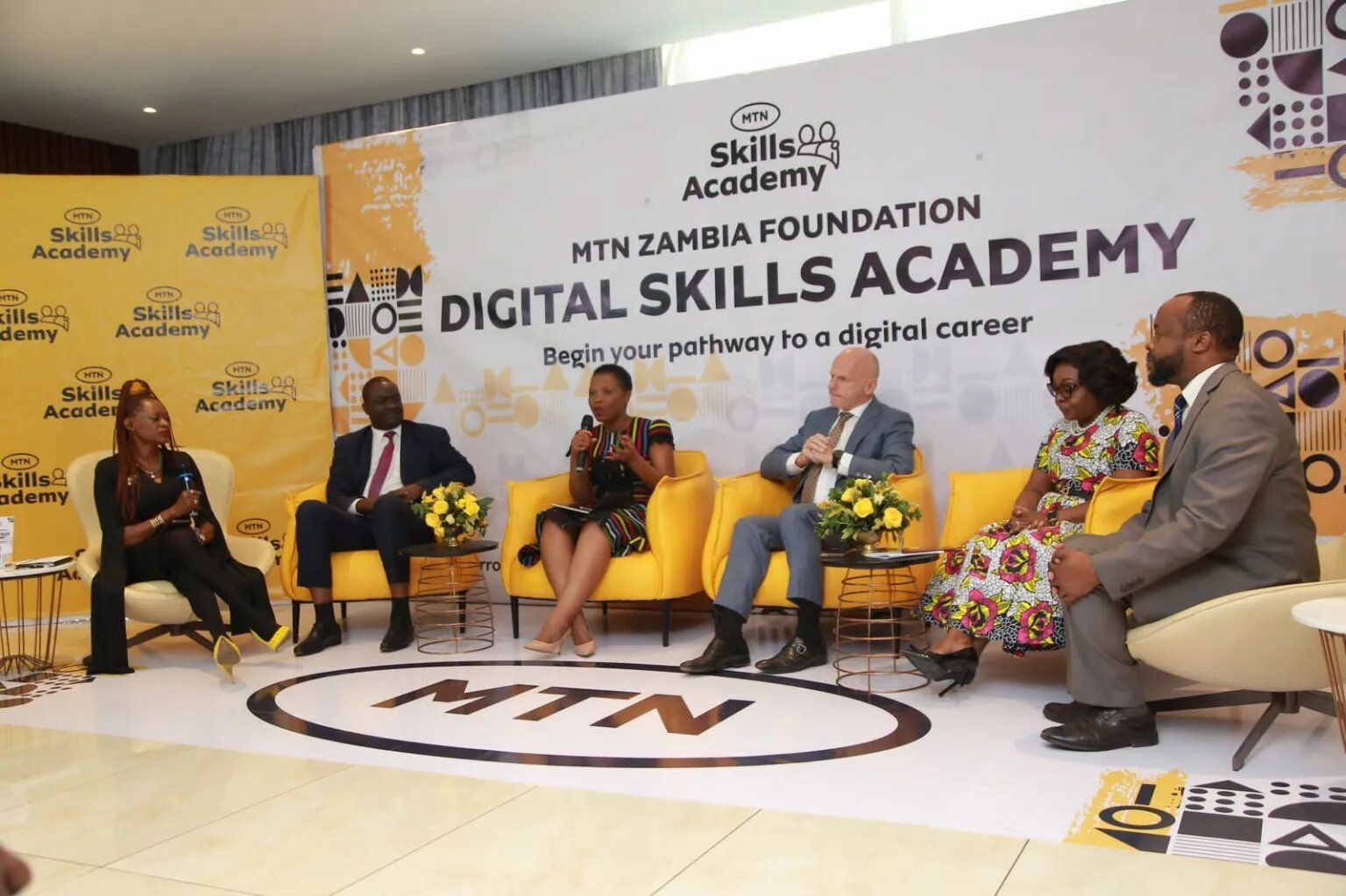MTN Launches Skills Academy to Close Digital Skills Gap in Zambia

In an effort to close the digital skills gap in Africa, MTN Group has introduced its flagship MTN Skills Academy in Zambia. The MTN Skills Academy is a free, online learning platform that was first unveiled at the Mobile World Congress in Kigali. The pan-African telecom is aggressively promoting the development of digital skills and job creation across the continent.
In the case of MTN, the telecom aims to reach a minimum level of competency in sustainable digital skills in at least 60% of young persons in each of its 19 markets by 2025. The telecom claims that the MTN Skills Academy is run in accordance with the goals of the African Union’s digital transformation agenda.
Nompilo Morafo, chief sustainability, and corporate affairs officer, of MTN Group, noted that it was no secret that digital proficiency is a must to remain competitive in this fast-changing world. She continued that the group was happy to bring the MTN Skills Academy to Zambia in order to assist young people across the nation in acquiring the skills and knowledge necessary to flourish in the digital economy.
“As a pan-African company, we are committed to driving growth and development across the continent, and through this investment, we are helping to create a more equitable and sustainable future for Africa.”
Elvis Nkandu, Zambia’s Minister of Sports, Youth, and the Arts, remarked during the inaugural event that the opening of the MTN Skills Academy was a big step forward for the country’s digital development. Underscoring Zambia’s commitment to preparing its children with the skills required to prosper in the digital era, he asserts the government’s dedication to encouraging science, technology, and innovation in the education sector, as well as programs like the MTN Skills Academy.
Bridging the Digital Skills Gap
Africa’s economy may become less dependent on natural resources by investing in skill development, helping to create the world’s future tech workforce, and delivering the continent and its people immense economic and social benefits.
Africa is expected to have the biggest employment share in the world by 2100, according to the World Bank’s most recent research, “Technological Transformation for Jobs.” To promote employment growth, the World Bank advises African nations to enhance their adoption of digital technologies. Furthermore, according to the International Finance Corporation, 230 million jobs will require digital skills by 2030.
In contrast to formal sector employment, the informal sector employs a large portion of Zambia’s workforce. In Zambia, teaching digital literacy is still a relatively new addition to the educational curricula. The most recent MTN program serves as more evidence of the necessity of introducing skills-based subjects or incorporating skill development into already existing subjects.
MTN Skills Academy’s entrance into Zambia follows an increased drive by corporate and public sector organizations throughout Africa to promote the use of digital technologies to foster economic growth and the creation of high-paying jobs.
